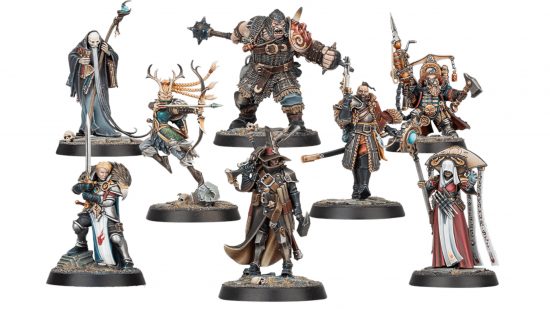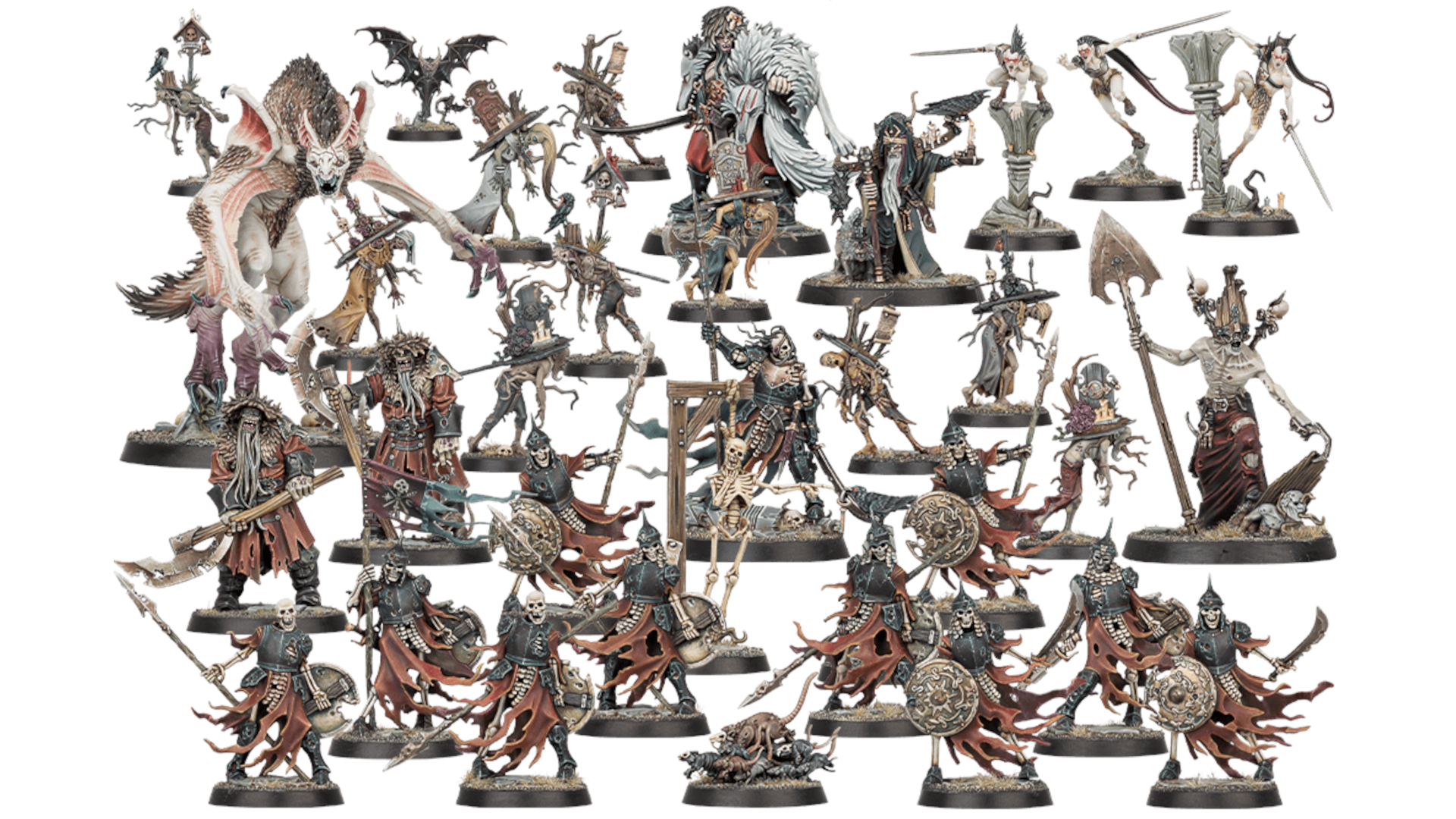‘Nemesis’, the final expansion for Warhammer Quest: Cursed City, goes up for pre-order next Saturday, and the game is going out with a whimper, not a bang. Nemesis contains no new models at all, and you won’t be able to use it unless you picked up the game’s first (and only other) expansion, ‘Nightwars’. On top of that, Nemesis is a web-exclusive, meaning it won’t ever appear in a high street Warhammer store.
It’s a sorry end for Warhammer Quest: Cursed City, a game that was so highly anticipated that, in April 2021, it sold out before it had even launched. Fans expected, not unreasonably, that the game would be supported with expansion packs, in a similar vein to its 40k forebear, Warhammer Quest: Blackstone Fortress. But after the triumphant launch, the game was effectively scrubbed from history by Games Workshop, falling out of production for over a year, and has only just returned to stores. Why did Games Workshop abandon such a hotly demanded title?
When Cursed City launched in April 2021, the Covid-19 pandemic had already gripped the globe. Lockdowns saw people stay home to curb the spread of the disease; non-essential staff were furloughed from businesses; and safety measures saw reduced teams working in a socially distanced manner. This, of course, slowed down all aspects of GW’s business. Simultaneously, the pandemic increased demand for the company’s products, as people trapped at home looked to building and painting miniatures for entertainment.
The pandemic also damaged two other, global industries, with major ramifications for Games Workshop. Unlike plastic components, which GW manufactures at its HQ in Nottingham, UK, the high-quality printed cardboard used for packaging and board games components are sourced from dedicated printers. Most of the world’s high-end, high-volume printing comes from China – not just for tabletop games, but the packaging for everything from mobile phones to perfume. These printers were crippled by the pandemic: GW took to shipping many products in plain white boxes.
The tabletop industry also relies heavily on global freight shipping. With staff sickness, lockdowns, and quarantine restrictions, freight shipping slowed to a crawl and prices rose. What’s more, the dull but vital shipping containers which the industry relies on were in short supply – many were stuck in backlogged ports, and the production of new containers (an industry also concentrated in China) dropped.
At the same time, Games Workshop was closing its old warehouse and opening a new, modernised facility. This meant running down inventory as much as possible, and producing as little as they could get away with, to ensure the warehouse shelves stayed as bare as possible. Many GW products ran out of stock repeatedly during the pandemic.
With less capacity to make finished products and move them around the world, and storage space at a premium, Games Workshop likely had to make hard decisions about what it would and would not produce during the pandemic.
The tentpole product for the Summer of 2021 was ‘Warhammer Age of Sigmar: Dominion‘, the massive launch box for the game’s third edition. Games Workshop pledged to produce enough stock of Dominion that anyone who wanted a copy could get one, responding to the fan backlash after Warhammer 40k: Indomitus sold out comprehensively. If there was ever a competition between Dominion and Cursed City when allocating limited production capacity and storage space, the flagship game was always going to win.
This is speculation, of course – Games Workshop hasn’t published a post mortem of Cursed City and what went wrong with the product’s lifecycle. Whatever the case may be, I hope the game’s cursed history won’t dissuade them from creating more Warhammer Quest titles in the future.
If you’re interested in the models from Cursed City, you’ll find a home for them in a Soulblight Gravelords army. For a Warhammer board game with similarly excellent figures, check outWarhammer Underworlds: Gnarlwoods. Or if you want to try something with a narrative bent and a gothic tone, we recently put a spotlight on Necropolis28, a free, indie wargame that’s equal parts Warhammer and Dark Souls.


